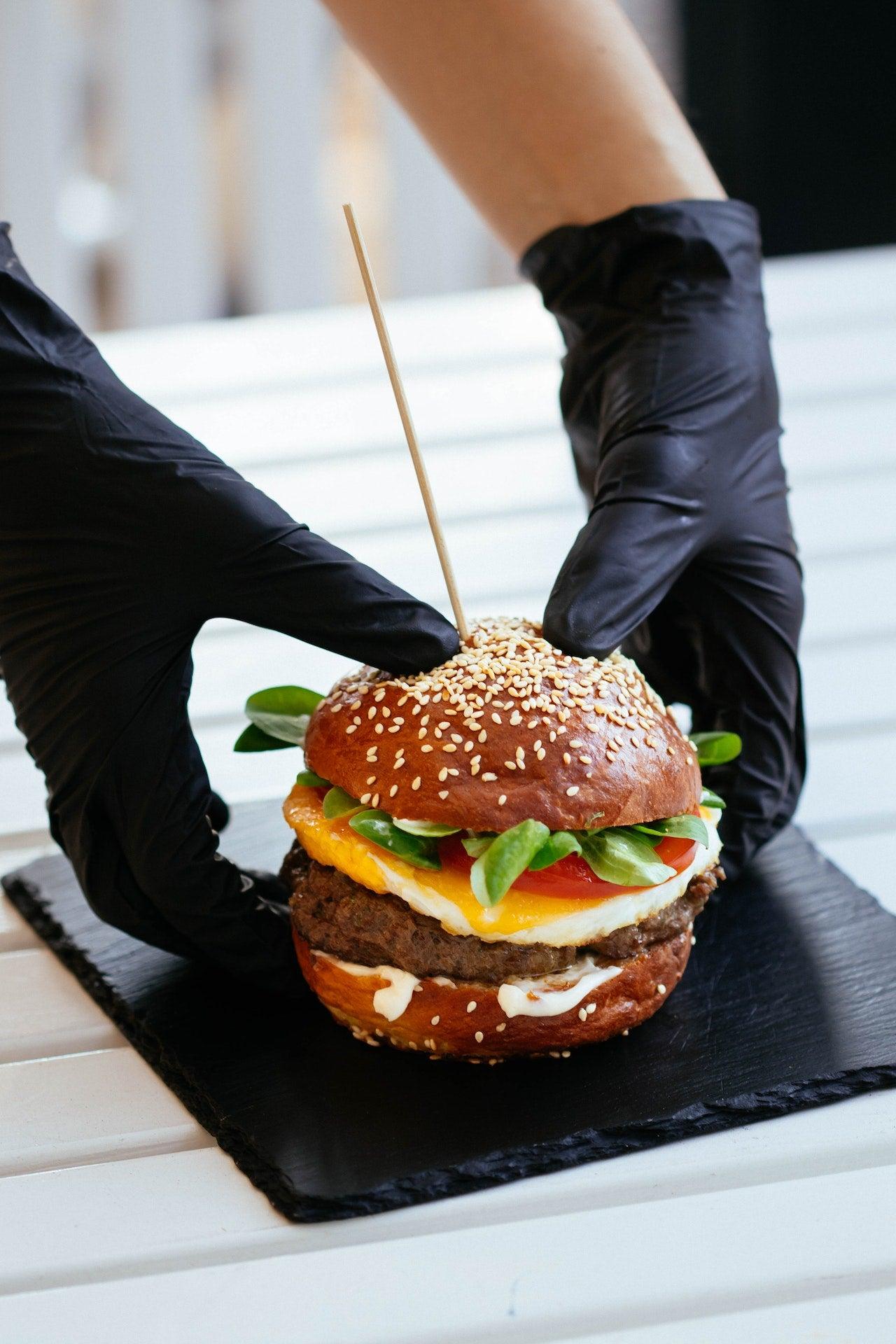In the realm of food handling and food safety, the use of gloves is a critical component that can never be underestimated. Food handlers play a pivotal role in ensuring that the food we consume is safe, free from contaminants, and prepared in a sanitary environment. Gloves act as a barrier between the food and the hands of the handlers, preventing the potential transmission of harmful microorganisms. In this article, we will delve into the various situations that necessitate a food handler to wear gloves, emphasizing the importance of this practice in maintaining food safety standards.
Understanding the Significance of Food Safety

Before we explore the specific situations requiring the use of gloves, it's essential to grasp why food safety is of paramount importance. Foodborne illnesses are a genuine threat, and they can have severe consequences for individuals and public health. Contaminated food can lead to widespread outbreaks, hospitalizations, and even fatalities. Food handlers bear a significant responsibility in preventing such occurrences.
Handling Ready-to-Eat Foods
One of the primary situations that mandate the use of gloves is when handling ready-to-eat foods. These are foods that will not undergo any further cooking or heating before consumption. Examples include salads, sandwiches, and fruits. The reason for using gloves in this context is to prevent potential contamination from the handler's hands, which could transfer harmful bacteria or viruses to the food.

Direct Contact with Uncooked Food
In cases where food handlers are involved in the preparation of uncooked food, wearing gloves is essential. This includes tasks like cutting, slicing, or marinating raw meat, poultry, or seafood. The goal here is to prevent cross-contamination, ensuring that bacteria from raw products do not come into contact with ready-to-eat items.
Handling Allergenic Ingredients
Food allergies are a serious concern for many people, and they can lead to severe reactions if allergenic ingredients are not handled with care. Food handlers should wear gloves when working with allergenic ingredients to prevent any accidental contact that could trigger an allergic reaction in a customer.
Dealing with Open Wounds or Infections
It is not uncommon for food handlers to have minor cuts, wounds, or infections on their hands. In such cases, it is imperative to wear gloves to protect both the food and the handler. Even minor skin issues can introduce harmful microorganisms into the food, posing a risk to consumers.
The Correct Way to Use Gloves
Simply wearing gloves is not enough; they must be used correctly to be effective. Here are some guidelines for food handlers:
- Regular Changes: Gloves should be changed frequently, especially when switching tasks or after touching potentially contaminated surfaces.
- Handwashing: Hands must be thoroughly washed before putting on gloves and after removing them.
- Proper Fit: Gloves should fit snugly to prevent any slipping or tearing.
- Single-Use: Gloves are not reusable; a new pair should be worn for each task.
- Avoid Touching Face or Other Surfaces: Handlers should refrain from touching their face, hair, or other surfaces while wearing gloves.
Conclusion
The use of gloves by food handlers is not a mere formality but a vital aspect of maintaining food safety. From handling ready-to-eat foods to dealing with allergenic ingredients and preventing cross-contamination, wearing gloves ensures that the food we consume is safe and free from potential contaminants. By following proper glove usage guidelines, food handlers can significantly contribute to the well-being of consumers and the prevention of foodborne illnesses.
FAQs (Frequently Asked Questions)
Q1: Do all food handlers need to wear gloves?Ans: Not necessarily. Gloves are required in specific situations where there is a risk of food contamination, as outlined in food safety regulations.
Q2: Are there alternatives to gloves for food handling?
Ans: Yes, some food handlers may use utensils like tongs or scoops instead of gloves when appropriate. However, gloves are often the preferred choice.
Q3: Can gloves be used instead of handwashing?
Ans: No, gloves are not a substitute for proper handwashing. Food handlers must wash their hands thoroughly before wearing gloves and after removing them.
Q4: What should food handlers do if a glove tears during use?
Ans: If a glove tears or becomes compromised, it should be immediately replaced with a new one to prevent contamination.
Q5: Are there specific glove materials recommended for food handling?
Ans: Food-grade disposable gloves made from materials like latex, nitrile, or vinyl are commonly used for food handling, but it's essential to follow local health regulations and guidelines.


0 comments